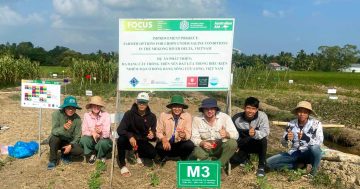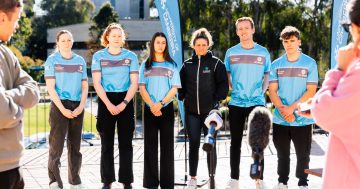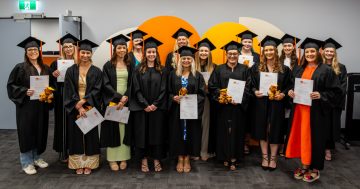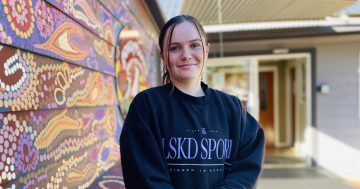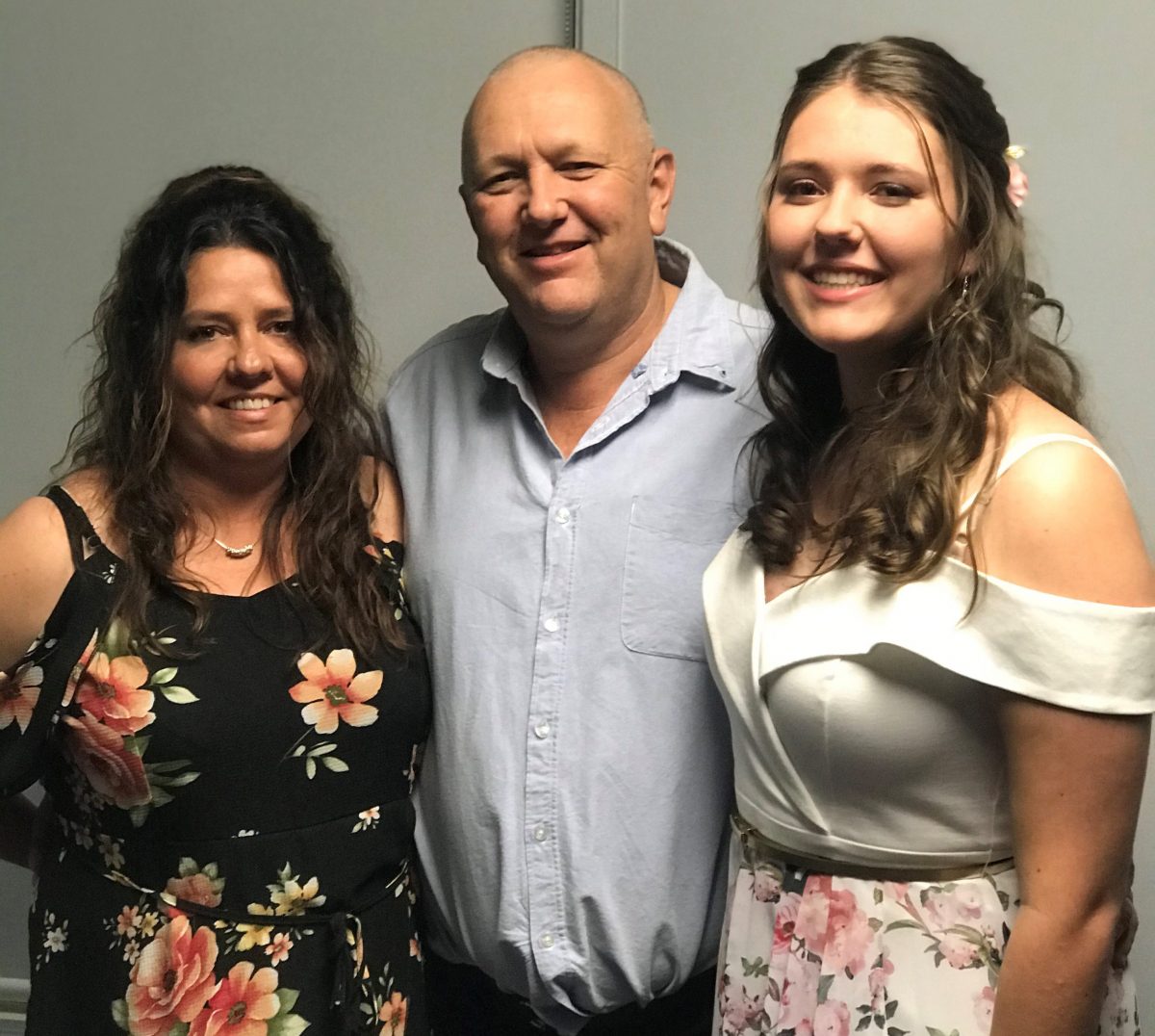
(Left to right) Kylie, Laurie and Teagan Mayor. Photo: Teagan Mayor.
Kylie Mayor knew her eldest daughter, Teagan, would always march to the beat of her own drum.
“From the moment she could sit up and open a book, she was telling us what she was doing, where she was going, what instrument she was playing,” Kylie says.
“We always knew she was different.”
Growing up on a property in Temora, Teagan and her four younger siblings never had much, but they always made do.
When Teagan was born, her late grandma provided a couple of hundred bucks that her parents used as seed money for a savings account.
“She used to put every scrap of pocket money into that account,” Kylie says.
“Although when her brother got sick, pocket money became minimal.”
When Teagan’s brother was diagnosed with type 1 diabetes, requiring constant medical attention and equipment, the Mayor family had to further tighten their belts.
“Teagan seems to think growing up not having a lot made her more determined,” Kylie says.
“Nothing has ever been handed to her. That’s why she’s resilient, hard-working and appreciative of what she’s got.”
Teagan became the first in the Mayor family to express a desire to attend university – an opportunity Kylie was determined she would have.
“We thought if it came down to it we’d remortgage the house or get a loan,” she says.
Fortunately, it never came to that. Help was out there; it was just a matter of finding it.
“I remember sitting in on a meeting with her school’s career counsellor and he said there can be a lot of grant money just sitting there because people don’t apply. He advised her to apply for everything,” Kylie says.
“She discovered CEF (Country Education Foundation). I had never heard of it.”
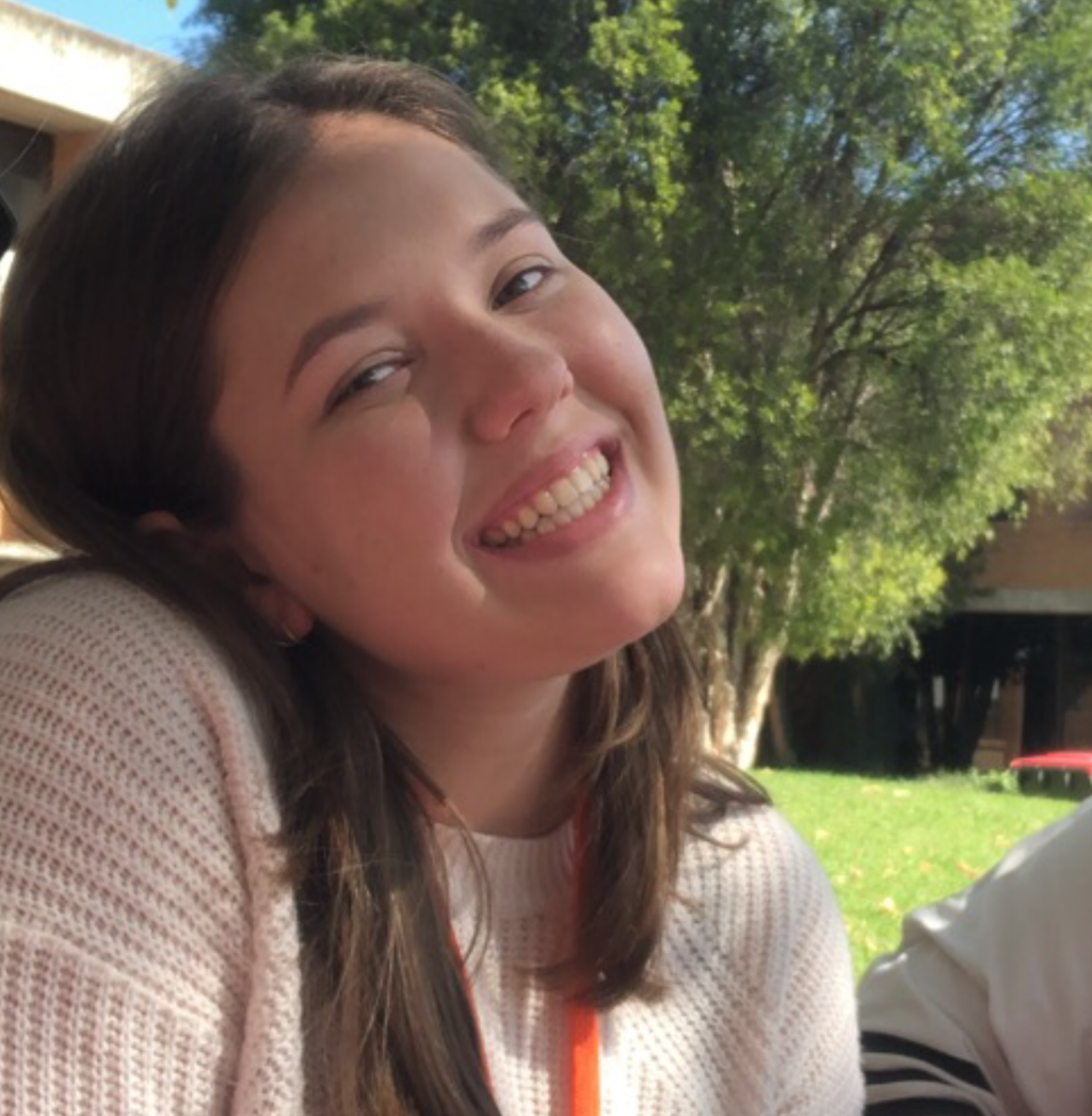
“Nothing has ever been handed to her” – growing up out bush, Teagan has had to work hard to finance her tertiary education goals. Photo: Teagan Mayor.
CEFs run by community volunteers across the country share one thing – a passion for seeing rural and regional youth succeed.
CEF’s community-based model provides social and emotional support for students.
Its ”Make it Possible” Rural and Regional Inspiration Hub can help with finding information and setting a student up for a successful education journey.
Administering equity-based grants and scholarships, CEF helps young rural and regional Australians achieve their dreams through supported access to further education, training and jobs.
Applying certainly paid off for Teagan, who says the CEF has helped “in more ways than one”.
Her first grant from the Temora & District Education Fund for 2020 paid her rent. Then, CEF’s partnership with Charles Sturt University led to a scholarship at the end of 2020 that financed necessary university supplies.
“I have now received one for 2022, and I cannot be more grateful for the generosity of my town and how much support they give me and other students like me,” Teagan says.
“Their endless support is unbelievable. They created so many opportunities for me and worked alongside me to help me achieve my goals.”
CEF’s 2022 scholarship application data found 32 per cent of respondents came from low-income families, while 33 per cent were the first in their family to look at studying.
Almost 51 per cent didn’t know about government support eligibility for regional students.
The 2017 Regional Transitions to University report found a lack of information, financial stress and anxiety around leaving home were key barriers to regional students attending university.
“It definitely assisted my family knowing that I was supported by my community while beginning a new chapter of my life,” Teagan says.
“My family is my biggest supporters and without them I wouldn’t be the person I am today. Their support of me helped me to reach out and find new pathways that could help in the financial battle of my future.
“Living under the poverty line has always been a struggle. Once I moved to Albury for university, I knew I had to find a way to provide for myself. The financial relief that the [CEF] funds gave me is indescribable. It really did change my life in all the best ways.”
But CEF impact and communications manager Nicole Wright says “you have to be in it to win it”.
“So many scholarships go unawarded each year,” she says.
“The short of it is, take the time and put in the effort now to find available support, as it will make things so much easier in the long run.”
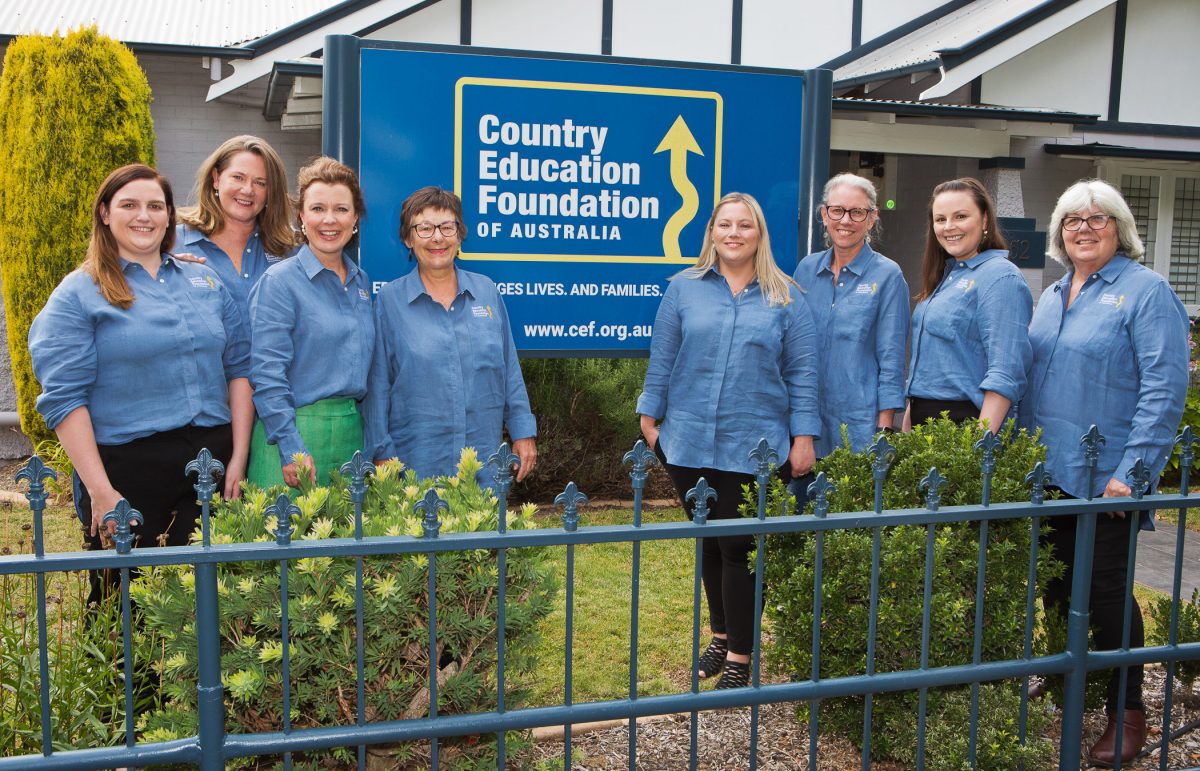
CEF has a passion for seeing rural and regional youth succeed. Photo: CEF.
Nicole says accessibility woes remain rife in regional and rural students’ pathways to tertiary education and there needs to be a nationwide approach to improving outcomes for this vulnerable cohort.
“Regional and rural students’ voices are being left unheard as access to tertiary education remains difficult and government promises show no sign of fruition,” she says.
“Students feel guilty, parents are stressed … We need better access to information and education opportunities and suitable support to increase the post-school education participation outcomes of regional youth.”
Between the grants and scholarships Teagan has secured via organisations such as CEF and seasonal work she picks up between her studies, she is supporting herself financially and putting herself through a Bachelor of Education.
“My goal is to work in small communities, help inspire the next generation and provide them with the skills and support that I got when I was their age,” she says.
“I want to prove to them that there is assistance out there for everyone no matter the circumstance.”
CEF grant and scholarship application rounds are now opening for 2022. Find your nearest foundation online to confirm opening and closing application dates. National scholarships are also available for eligible students – learn more on the CEF Extra page.
Original Article published by Dione David on Riotact.








